|
One of the great gifts of the Second Vatican Council and the liturgical renewal of the twentieth century was the emphasis given to the proclamation of the Word of God at all sacraments, primarily at the celebration of Mass. Popes, bishops, and theologians have all sought to highlight the relationship of the life of the Church in every dimension to the Sacred Scriptures. Scripture is the foundation of all that we do as Catholics, ultimately because Scripture is the Word of God. These divinely revealed truths tell us who God is, what He has done throughout history, and what he continues to do, working in our lives each day. Pope Francis, in continuing this call for a renewed sense of awe and appreciation of the Word of God, has proclaimed the third Sunday of Ordinary Time as “Word of God Sunday.” This past Sunday, January 26, was the first observance of Word of God Sunday, and so this week is a great time to reflect on the role that Scripture has in our lives as we seek to model our lives on Jesus Christ, the Word of God. In reflection, we can ask how do we allow the scriptures to permeate our lives so that God’s word is alive in us? Maybe we have a favorite passage, one that we return to again and again to meditate on at different stages in our lives. Or maybe we haven’t really spent much time with Scripture, aside from hearing it at Mass or other occasions in Church. This week, this Word of God Sunday, serves as a reminder to take the gift of Scripture and to allow the Word of God to seep into the rhythm of our lives so that we more fully and deeply come to know our Lord and ourselves. One of my favorite passages of Scripture is from the 24th chapter of the Gospel of Luke following the Resurrection of Jesus. We hear of the encounter that two disciples had with our Lord while walking on the road to Emmaus. These two disciples were stunned at what had taken place and were unsure of what to make of the crucifixion and death of the man they believed to be the Messiah. They were sad that their friend and leader, Jesus, had been so cruelly murdered, and were overcome with grief. When they encounter this man, a man they “were kept from recognizing” (Luke 24:16), he asked them to recount these events. Their almost sarcastic response – “Are you the only stranger in Jerusalem who does not know the things that have taken place there in these days?” (Luke 24:18) – shows us how human an experience this was for the disciples. They explained everything to this man and were shocked that he had no idea what had happened. Little did they know, they were speaking with Jesus himself! So often we focus on one problem or another, are so concerned with our own difficulties, or so caught up in our joys that we forget to consider how the Lord is working in our lives. We don’t always welcome him in and we neglect to see that, in reality, he has been there all along, walking with us on the way. Sometimes, like these two disciples, it is not until later that we see God’s work in our lives, only in reflection. It was not Jesus’ explanation about the work that God has done since Moses and the prophets that opened their eyes to the reality before them. St. Luke tells us, instead, that “was made known to them in the breaking of the bread.” (Luke 24:35) Isn’t this our experience today? We come to know about God through study or reading. But it is in and through the sacraments – especially in the Mass – that we come to know God most fully. When we pray with the Word of God in Sacred Scripture, we open our hearts to an encounter with the living God. We may not recognize him right away—it may take time or a change in our life to make it clear—but those moments when we have a real encounter with God can show us how much he has done in our lives, how close he has been all along, teaching us, guiding us, and preparing us for the great things he has in store. May this Word of God Sunday be a new invitation to welcome the Lord into our lives through his Word. May our hearing and reading of Sacred Scripture always be an encounter with God.
0 Comments
“Seek God and you will find God. Seek God in all things and you will find God in all things. Seek God always and you will find God always.” – St. Vincent Pallotti
Do we live our lives seeking God or realize that God is seeking us? God is indeed seeking us. In fact, we have been found in our Baptism. We enter into the mission of the Son who was sent by the Eternal Father into the world to save us. We are co-responsible for this mission and are in “holy cooperation” with the Most Blessed Trinity. Therefore, we are sent by Christ as his apostles or missionary disciples into the Church and the world to revive faith and rekindle charity. We accompany other seekers in becoming found in Christ and through his Church. Today is the 170th anniversary of the death of St. Vincent Pallotti. It is also his feast day. He believed, taught, and lived the ideals of accompaniment, co-responsibility, and holy cooperation mentioned above. His foundation, the “Union of Catholic Apostolate, a gift of the Holy Spirit, is a communion of the faithful who, united with God and with one another in accordance with the charism of St. Vincent Pallotti, promote the co-responsibility of all the baptized to revive faith and rekindle charity in the Church and in the world, and to bring all to unity in Christ” (General Statutes, 1). This means that lay people, those in consecrated life, and clergy are in collaboration with one another, not only in the Union, but also in the Church and with those of good will in the world. Each person has a role. Each person is responsible. Each person shares in the mission of the Church in spreading the Gospel. Pope Francis recently wrote about this shared mission in his Apostolic Exhortation, Christus Vivit. He was writing about ministry with young people, but these words can be extended to all the baptized. “Youth ministry has to be synodal; it should involve a ‘journeying together’ that values ‘the charisms that the Spirit bestows in accordance with the vocation and role of each of the Church’s members, through a process of co-responsibility... Motivated by this spirit, we can move towards a participatory and co-responsible Church, one capable of appreciating its own rich variety, gratefully accepting the contributions of the lay faithful, including young people and women, consecrated persons, as well as groups, associations and movements. No one should be excluded or exclude themselves’” (Christus Vivit, 206). For co-responsibility to be truly a lived reality there is much more work to be done. St. Vincent Pallotti was visionary and prophetic in his understanding, but the work was unfinished. Let us not wait. Instead, let us "remember that the Christian life is one of action; not of speech and daydreams. Let there be few words and many deeds and let them be done well." Blessed feast day of St. Vincent Pallotti! May the Charity of Christ urge us on! As we celebrate the Nativity of our Lord Jesus Christ at Christmas, I find myself grateful that the Church has established the liturgical calendar in such a way as to help shake us out of our spiritual complacency. The high-points of the Church year—and the larger Christian experience— are referenced so much in our Faith that we may sometimes find ourselves on spiritual autopilot. Before we know it, we might find that solemnities are immediately upon us (or past us), and we feel that we could have benefited from more spiritual preparation. This year, I was looking for a clear and direct theme I could really focus on as Christmas approached. I came across some writings of Venerable Servant of God Fulton Sheen that called to mind certain details of Scripture that my eyes (and spiritual life) might typically gloss over. Recalling the helpless innocence of the Christ-child ready to be born of Mary, Sheen related Mary and Joseph’s plight in searching for late-night shelter in Bethlehem to the lack of hearts open to God which can offer the King of Kings and Lord of Lords a place to dwell and reign:
[W]hen finally the scrolls of history are completed down to the last word of time, the saddest lines of all will be: ‘There was no room in the inn.’ The inn was the gathering place of public opinion, the focal point of the world’s moods, the rendezvous of the worldly, the rallying place of the popular and the successful. But there’s no room in the place where the world gathers. The stable is the place for outcasts, the ignored, and the forgotten… The lesson is: divinity is always where you least expect to find it. So the Son of God-Made-Man is invited to enter into His own world through a back door.[1] With all the seasonal emphasis on gifts and personal generosity, I am especially touched by that first line and the reality that there was no room made available for the arrival of the long-awaited Son of God. How often do we hear calls to be watchful and ready for the Second Coming of Christ; that is, to be repentant of sin and committed to pursuing holiness? This preparation is what the first part of the Advent season is all about. When we are called before the Final Judgement seat of the Most High, and God Himself shows us what we did or did not do for Him[2] in our earthly encounters with the people in our lives, will we say that it was too difficult or inconvenient to take up what we knew was expected of us? All of the baptized are called to be missionary disciples—people who spread the joy of the Gospel by their very lives. We can bring others into an encounter with the Living God—or at least instill a sense of hope, dignity, and love in those who are in need—in the workplace, at home, in our neighborhoods, in our parishes, and within our families. In doing so, we make room in the inn of our hearts for the Christ-child. Without Christ present in our hearts and at the core of our being, we will find ourselves serving a different master—be it vices, worldly pleasures, fleeting successes or honors, or other vanities. Just as the innkeepers of Bethlehem two-thousand years ago declined to open their doors to the Holy Family, so too do each of us have the choice either to be seduced by the empty promises of the world or to pursue a life of holiness and of speaking the Truth among the doubtful, suspicious, hateful, or unrepentant. This Christmas season, let us allow Christ into our lives in order to bring him to others. Let us preach the Gospel with our lives and seek to always make room for him in the inn of our hearts. Christmas is a time for celebration! We rejoice that the Lord God Himself took on human nature and was born as a helpless Child into the world He created in order to free us from sin and death and invite us to live with Him forever. The occasion of Christmas encourages each of us to be a welcoming soul to the Lord rather than one who closed their doors to the Holy Family that holy night: Joy to the world, the Lord is come! Let earth receive her King! Let every heart prepare Him room. And let it begin with me. Amen. [1] Sheen, Fulton. “Life of Christ” (1954). [2] cf. Matthew 25:40. “The religious commitment to procure the propagation of the Holy Faith throughout the world cannot be separated from that to procure to revive the Faith, and to rekindle Charity among Catholics, and this not only because such is the order of Christian Charity, but also because there is a need to rekindle the Holy Faith and to rekindle Charity among Catholics.” – St. Vincent Pallotti (OOCC III, 16)
As we celebrate today the 8th anniversary of the Catholic Apostolate Center during this Extraordinary Missionary Month declared by Pope Francis, these words of St. Vincent Pallotti offer us a summary of the interconnection of the Church’s missionary efforts, encompassing what we now call Evangelization and New Evangelization. Pallotti understood this in the first half of the nineteenth century. He knew then what the Church is calling for now, co-responsibility of all the baptized for the mission of Christ and his Church. We are all sent forth as apostles, as missionary disciples! The Center accomplishes its mission of reviving faith, rekindling charity, and forming apostles through intense collaboration, or “holy cooperation” as Pallotti would call it, with God and others. The only way the Center has come to this day is through the great collaboration among staff, collaborators, advisors, Pallottines, consultants, affiliates, and many others who are co-responsible for its mission. The Holy Spirit who came upon the Blessed Virgin Mary and the Apostles and disciples in the Cenacle in Jerusalem has sent us forth and guided us in ways that we could never have imagined back in 2011 when the Center began. We do this always in service of Christ and his Church just as Pallotti did. Thank you for your support of our efforts and know that our prayers are with you! Mary, Queen of Apostles, pray for us! St. Vincent Pallotti, pray for us! May the Charity of Christ urge us on! Can you imagine yourself as one of the apostles? Put yourself in their shoes. You were moved by Jesus. His teachings spoke to your heart. When you were with him, you felt incredibly alive, free, loved and full of hope. No one persuaded you; you wanted to follow him. You were there when Jesus fed the 5,000, gave sight to the blind, and raised a young man from the dead. He received a royal welcome into Jerusalem. You celebrated Passover with him. You were also there when the soldiers came and dragged Jesus off to be crucified. Scared for your own life, you hid in the shadows abandoning him to death on the cross. You were a puddle of fear, sadness, anger, and despair. You disgust yourself. Disoriented, you stumble upon the others. You look to Peter but that rock is crushed, broken by grief and disbelief. The Sabbath comes and goes. It’s over—time to pick up the pieces of your life and move on. But just as you begin to leave, two female disciples arrive with astonishing news. Jesus is alive! Remember the mountain in Galilee? Remember what he said? Go there and you will see him. Of course, you go. You gather with the other disciples and make arrangements for the journey. It will take four days. Along the way, you cry, confess, and tell stories. You see the mountain in the distance. A lone person is descending from the top. Before you know it, Jesus is approaching you. You are gaping-mouth-open astonished. Some fall down to worship him. Others cannot believe it. Peter collapses to his knees. And still, Jesus approaches. He embraces you. You are alive again. Jesus reaches out to everyone. He turns to Peter last, lifting him up, restoring his strength. Jesus calls you together. "All power in heaven and on earth has been given to me. Go, therefore, and make disciples of all nations, baptizing them in the name of the Father, and of the Son, and of the Holy Spirit." He pauses here, letting his eyes meet each one of us. Some of us are giddy with joy, others cannot stop the tears. "Teaching them to observe all that I have commanded you." Suddenly, your heart begins to burn within you. You have a lot to say, a lot to share, a lot to tell. You remember with crystal clarity everything he taught, every moment he was with you, all the experiences you shared. You know now who you are and what you are about. It is time to go. But you hesitate. You want to stay. Jesus knows your heart. He is speaking again. Amazingly, he is talking to everyone and only you at the same time. "Behold, I am with you always, until the end of the age." Stay here. Stay with Jesus resting his eyes in yours. You have a lot to offer. You know who you are, what the Lord means to you, what he asks of you, and what he has given you. The stark truth of mission is hard to believe. God sends you into the world because there is something the world needs that only you can give. World Mission Sunday reminds us that we are sent to the whole world. As disciples of Jesus, there is no place or people beyond our sphere of concern. Pope Francis reminds us that mission is an "immense work of mercy, both spiritual and material." Last year, many of us “walked with Francis.” This year, let us be with Pope Francis in the mission of mercy. Let us renew our call to mission - to care about everyone, everywhere. I offer three suggestions on how to renew the call to mission:
Jesus is sending us out to all nations and he will be with us always. We will be astonished at how the Lord will reveal himself to us through mission. It is time to go. **This post was originally posted on October 20, 2016. Recently at Mass, our priest explained the love of God as Father in a way that I had never heard before. As a parent and teacher, I resonated with his words deeply. In the Gospel, Jesus sent out 72 disciples in pairs to share the good news (Luke 10:1-12, 17-20). They came back rejoicing in all that they could do - like cast out demons - because of the name of Jesus. But our priest reminded us that this is because of God’s glory, not ours. In fact, Jesus didn’t even need the 72 if he didn’t want them. As God, he could share the Gospel on his own to the whole world, in an instant. But instead, he finds it more beautiful and meaningful to have them and us share in ministry. Yes, it is also messy, but love shared is so much more fruitful. Our priest gave many examples of how a parent lets their child help with chores. I experienced the same “I want to help!” one day as I was cutting strawberries. I could have done it in five minutes by myself, or I could let my two-year-old son help—knowing that this would take much longer, that there would be more to clean up, and that I would have to take a lot more precautions. But I sat him on the counter, and he started taking off stems as I washed the strawberries. He took a turn washing some, too. He let me cut the strawberries, but he said he would put them in the container for me. And what a delight it was to remind him how helpful he was, to have him remind me that “we have to be safe” while using a knife, to see him eat a few strawberries along the way and remark on how yummy they were, and to see the joy on his face when he put the lid on our bowl of cut up strawberries and help put them in the fridge. In the same way, God lets us help him prepare strawberries, too. He delights in our imperfect attempts to help and love, to share in his ministry, wherever it is that he has called us to serve. As I write this, it is the second anniversary of my son’s baptism. It is not lost on me what a gift and responsibility it is to raise our children in the faith: to be nurturing saints for heaven alongside my husband and how grateful I am to our community near and far who support us along the way. But again, I am reminded that God could raise our children much better than us (just ask me about tooth brushing or navigating toddler discipline). But he lets us do so and he gives us love and mercy and grace to accompany us day after day. This grace is found abundantly in the sacraments. I pray that we teach and model to our children that we can always call upon that grace, and that they have a desire to participate in it. I pray that they may say to God, “I want to help!,” knowing that all is for God’s glory—not theirs – and that through Him all things are possible. At the end of the Gospel, Jesus reminds the 72 to “rejoice because your names are written in heaven” (Luke 10:20). My prayer for my children – and for each of us as we celebrate the gift of our baptisms, is that we always know that we are loved, wanted, and called. May we know that by the gift of baptism, our names, too, can be written in heaven. To my son, I pray that you’ll always want to help prepare strawberries with me and with God. Thank you for teaching me about childlike faith in a whole new light. Thank you for letting me help God – even though imperfectly – by raising and loving you. It is mine and your father’s greatest joy to serve God through the gift of our children’s lives. “Think big, start small.” That was the one-phrase summary that my working group at the Post-Synodal Forum on Young People presented on our last full day at the Il Carmelo retreat house. For three and a half days, over 250 youth and young adults from over 110 countries and over 30 Catholic groups and movements gathered in Rome to discuss the Synod on Young People, the Faith, and Vocational Discernment and Pope Francis’ Apostolic Exhortation Christus Vivit. My group was comprised of fourteen delegates who represented nations including India, Germany, Zambia, Slovenia, Moldova, and more. We came up with these four words (Think big, start small) because over the course of the many panels, presentations, interventions, and working group meetings, we realized just how big of an endeavor engaging the young people of our global Church is. Country to country, diocese to diocese, some general patterns remained the same. Christus Vivit and the synod present a beacon of hope; unfortunately, in many countries the document has not been widely read, although it has been generally well liked when it has been read. In many places, the document is not translated into the necessary languages. My friend Stephen from Hong Kong, for example, mentioned that young people simply cannot afford a printed copy of the document in his country. Many young people mentioned how they face opposition from clergy and lay people regarding their active role in the Church. One of the delegates from Ireland recalled an instance when a new dishwasher was touted as more important for her parish than funds to go to youth ministry when they were needed. The challenges that face us are great and they are global, but young people, and the members of the clergy and laity that support them and collaborate with them, will not be stopped. In chapter four of Christus Vivit, Pope Francis reminds young people that they are loved by God, that Christ saves us, and that Christ is alive! These words have settled deep into the hearts of young people and the people who advocate for and accompany them. Many times, Pope Francis has reminded young people that they are protagonists in the Church, that young people are not just the future of the Church, but also the now of the Church. These realities came up over and over again in our discussions at the forum. I was amazed by the initiatives in Ghana for ministry to young people that included a separate and distinct ministry to young people who are imprisoned. I was happily surprised to hear that many nations had national youth organizations that are led by young people. For example, my friend from India, Jesvita, is the most recent president of an Indian Catholic Student movement. Importantly, these initiatives are not ones that exist within a “young people bubble,” but are movements and ministries of collaboration that see the young people, the clergy, and their ‘elders’—as Pope Francis calls them in Christus Vivit—working together, being synodal. The biggest takeaways from this forum are encouraging to say the least. Young people understand the need to be people of action, or apostles on mission. Only then can we truly be leaders. These actions must be concrete, not vague generalizations, and they must be collaborative. Young people want to integrate what the Holy Father has written for us in Christus Vivit into how we approach our ministry to young people. The principle of accompaniment was one that was constantly highlighted at the forum, proof that young people want to be a generation of encounter. The first line of our ten-line summary that was presented to the Dicastery and the Holy Father read, “we are the face of Christ, fully alive.” And this is how we move forward, with an understanding of the reality that we are the face of Christ in our world, that we are protagonists. Acting with Christ as our guide, we seek the conversion of hearts, both ours and those of others, and we have dreams that are big. May we never be deterred, may we always think big and start small, and may we always seek to build the Kingdom of God by walking together, listening to one another, and persevering in our shared faith. For more resources on the Synod on Young People, Faith, and Vocational Discernment, please click here. A little more than three years ago, I was asked to be the coordinator of my parish’s youth group. I had just begun college and taking on such a big responsibility seemed terrifying - it felt like I was trying to climb a very tall mountain and the top seemed impossible to reach. As I started this new position, I noticed that my group lacked organization, teen attendance, and the presence of trust because they did not know me as their leader. Working to create a semblance of routine and structure to use every Friday afternoon was probably the easiest thing to do, but attendance and building trust would need more work. We had about 4 teens that were committed to attending youth group every Friday. I asked myself, “How am I going to get more teens to attend? Where do I find them?” Another important question I asked was, “What will make them want to come back next Friday?” So, I got to work and created social media accounts under the group’s name to get the word out about our meetings. I spoke to the prayer group for adults that would meet at the same time and asked them to bring their teens to our group instead of leaving them at home. With a lot of prayer and thought, I realized that what these teens were lacking was an encounter with Jesus, so I would focus my talks on God the Father, Jesus, and the Holy Spirit. I also focused on doing group prayers where the teens had the opportunity to speak to God. As stated in Living as Missionary Disciples, “An encounter with the Lord brings about a profound transformation in all who do not close themselves off from him” (LMD 11). I witnessed this firsthand. Many teens started to come and seemed hungry to know more about God. Then came the third task: building trust. I noticed that these teens desperately needed someone to trust and wanted to be heard. Many times, we think that a young person has the perfect life. Most of these teens’ parents provide everything for them, including shelter, food, and clothing. It’s easy to think that all they do is go to school during the day and help around the house with a few chores. In reality, this isn’t true. I’ve come to learn that many of these teens experience peer pressure at school, have problems at home, and are constantly being bombarded with impossible standards on social media. The teens needed someone to walk next to them and listen to them. As Living as Missionary Disciples states, “The response to this encounter with Christ needs accompaniment” (LMD 14). The teens needed someone that would not judge them but instead be there for them. They needed to be able to be themselves and feel accepted the way they are despite their past or where they are now. As Living as Missionary Disciples also says, “We are not called to make judgements about others.” (LMD 15) Three years later, I have finished this pastoral ministry journey. I learned so much from the teens, such as the importance of having a personal encounter with God and the importance of accompanying the members of your ministry. Some tips I have for a pastoral minister include valuing the importance of constant prayer and regularly asking the Holy Spirit to come upon the ministry and give a vision of where to go and where to take the ministry. It’s also important to be able to recognize the needs of your community or within the demographic with which you are working and to be able to address those needs. There should also be a balance of “church work” and a healthy personal life. I personally lacked this balance and burned out, which led me to give so much and not take the time to give back to myself. Taking these measures will prevent the minister from burning out and help him or her be able to give more in the long run. For more tips on self-care visit our Self-Care for Healthy Ministry resource page. January, as the first month of the new calendar year, is for many people a time to start fresh. And January 2019 in particular seemed to be the month of intense home decluttering. This is probably due to the advent of the Netflix show “Tidying Up with Marie Kondo.” I have friends and relatives who had never heard of Kondo’s bestselling book before the streaming show debuted, and yet I have watched them become KonMari method adherents, filling my social media feeds with success stories about the household clutter they are donating or dumping. Amid all this physical decluttering, I find myself wondering how often we take time to do some spiritual decluttering as well. Especially for myself—I strive to maintain a ruthless-but-not-obsessive attitude about household clutter. But do I regularly declutter my soul outside of going to confession every month or two? And when I do attempt spiritual decluttering, do I approach it with the same kind of enthusiasm about ridding my soul of the things that are holding me back from God? In this new year’s spirit of decluttering and simplifying, we tend to think about the kinds of things in our homes that we no longer need: toys missing essential pieces, gifts we will never use but feel too guilty to donate, soccer participation trophies from third grade. But we should also think about the kinds of things that make up ‘spiritual clutter’: useless smartphone games that waste hours of our time, social media accounts that just fuel jealousy and resentment toward our peers, junk food binges that disrespect our bodies as temples of the Holy Spirit. What are the things that our minds, our bodies, or our souls cling to that do not bring us closer to God? In Luke’s Gospel, Simon, James, and John “leave everything” to follow Christ. We also are called to leave everything and follow Christ. But what does everything mean when we live in the twenty-first century with all of its modern conveniences? We are not all called to join a mendicant order, to become cloistered nuns, or to become missionaries in the far-flung corners of the world. We still need shelter, food, clothing, and dignified work. But along with striving to make our homes oases of calm in a chaotic life, so too should we strive to make our souls oases of peace in a fallen world. If we really stop to think about it, spiritual clutter is as ubiquitous as and more detrimental than physical clutter. Everywhere we turn, there are bad habits and ill-formed attachments that keep us from deepening our relationship with God. And just like physical clutter, spiritual clutter is a deeply personal thing. We can choose to ignore it, but—like its physical counterpart—spiritual clutter will eventually take over our lives until we dread even peeking into those areas that are the messiest and need the most work. But we must look inward in order to grapple with the things that keep us from following Christ—especially if we dread what we will discover about ourselves. When the metaphorical pile of spiritual clutter seems insurmountable, it is good for us to remember that we are not alone in our endeavors: God is there beside us, calling us to engage with him in the sacrament of Penance, which itself is spiritual decluttering. With its thorough examination of conscience and its outpouring of God’s grace, going to confession not only absolves us of the sins that clutter our hearts, but it also bolsters us to overcome those temptations in the future. And, with God’s grace, the spiritual clutter that accumulates in our hearts will slowly begin to seem more manageable and less insurmountable, until one day we realize that the things that had once seemed to control our lives are no longer more than a passing temptation. As the new year continues on and we declutter more of our physical homes, let us remember to give equal attention to our spiritual homes. Question for Reflection: What are some things that are cluttering your spiritual life? Before any major event, we need to prepare. A student needs to study for an exam. A runner must practice before running a marathon. A bride and groom plan out the intricate details of a wedding day. A mother and father decorate the nursery before their baby is born. As you anticipate the festivities of World Youth Day (WYD) 2019, you must also prepare yourselves spiritually for the event that is about to take place. You need to get yourself into the right mindset in order to be open and to fully experience all that WYD 2019 will have to offer, whether you are traveling to Panama, attending a stateside event, or participating digitally. We are preparing to: Encounter, Accompany, Live Community, and Send! Encounter There are many ways in which leaders and pilgrims alike will experience the act of encounter when they are participating in a World Youth Day celebration. The most important encounter that leaders or pilgrims will experience is the encounter with Jesus Christ. We are able to encounter Jesus Christ through the Sacraments, through scripture and prayer, through service, and through our relationships with others. The WYD experience provides for ample opportunities for the encounter with Jesus Christ particularly through Masses, catechesis sessions, and through building and developing relationships with your fellow pilgrims and leaders. Accompany As a pilgrim, you will need to accompany your fellow pilgrims during this journey. Be there to support and encourage each other on the road. The act of accompanying furthermore requires a pilgrim leader to maintain a delicate balance of not only providing support and encouragement, but also allowing your pilgrims to encounter Jesus Christ in their own way. You need to be there to support your pilgrims, but you also need to let them figure things out themselves. But you are not doing this alone. As a leader, you are accompanied by your pilgrims, your parish, your diocese, your community, your family, all of those also participating in WYD2019, and the Church as a whole. For leaders and pilgrims alike, one important thought to keep in mind about the act of accompanying is that you need to meet people where they are. You cannot expect anyone to be exactly where you are on the journey due to everyone’s different life stories and challenges. Pray for an openness to support those around you in the way they need best. Your accompaniment can lead others into deeper life in Christ in and through the community of faith, the Church. Live Community Nothing that we do as Catholics is done simply alone. We are in relationship with God, the communion of the Most Holy Trinity. We are part of the community of faith that we call the Church. The point of common bond with one another no matter where one is from at WYD2019 events is rooted in this community. We move beyond simply ourselves and into deeper communion with the global Church. “Fellowship and communion with one another in the community of faith is also a reflection of the Trinity” (Living as Missionary Disciples: A Resource for Evangelization, 16). You as leaders and pilgrims need to live community deeply during the time of WYD2019. It is not simply a trip, but an opportunity to more fully encounter Christ in the community of faith. While we are always rooted in community, God also sends us forth on mission to a world that needs our witness of the love and mercy of Christ, especially after WYD2019. Send World Youth Day 2019 isn’t over on January 27, 2019. It continues on through your experiences and your enthusiasm long after your flight has landed back from Panama or you have returned home from your local stateside event. You must share your stories with your friends and those in your parish to enliven them with the gift of the Holy Spirit that you received at your event. You must continue on the journey as a missionary disciple. As Pope Francis tells us in Evangelii Gaudium, “Every Christian is a missionary to the extent that he or she has encountered the love of God in Jesus Christ: we no longer say that we are ‘disciples’ or ‘missionaries’, but rather that we are always ‘missionary disciples’” (120). Once we experience the great love of Jesus Christ, we must go forth and share that good news with those around us. We are inspired by the example of Pope Francis as well as the patron saints of World Youth Day to do so. We invite you to continue to prepare for this journey on which you are about to embark. Take a look at the USCCB’s World Youth Day page and the Catholic Apostolate Center’s World Youth Day Portal. Read through the guides for stateside pilgrimage leaders and for international pilgrimage leaders for more about Encounter, Accompany, Live Community, and Send.
This year, the theme for Catechetical Sunday (September 16th) is “Enlisting Witnesses for Jesus Christ.” This day is a reminder that all of the baptized play a role in the mission of sharing Christ with others, whether that be through formal or informal ministry. This mission seems pressing today. In Bishop Robert Barron’s 2018 message for Catechetical Sunday, he says we are losing baptized Catholics at an alarming rate. In a Pew Research report, we see that Americans who identify as atheists or agnostics make up about 23% of the U.S. adult population. This group of religiously unaffiliated individuals, or “nones,” is mostly concentrated among young adults, and the median age of unaffiliated adults continues to get younger. Of this population, those who describe themselves as agnostic or “nothing in particular” cite their top reason for not affiliating with a religion is that they question a lot of religious teachings. Having questions is actually an essential part of learning about and understanding the Catholic faith; only when we question can we begin to move beyond a lack of understanding and come to learn the truth of the Gospel. God desires for us to use our intelligence to come to know him before acting upon our faith. The majority of young adults and “nones” find value in meaningful relationships over institutionalism and in authenticity over authority (Halbach). This shows us that the Church can engage the “nones” by forming relationships in order to accompany them along the journey of life. In the mission to bring Christ to others, we serve as authentic witnesses to the Good News of the Gospel through our lives. The Church needs the active participation of the laity to conduct outreach efforts in the everyday moments of our lives, both inside and outside of the Church. We were created to be social beings who can form relationships with others that will lead them to Christ and to the Church. Much of this relationship building happens organically in our communities and parishes. For example, a couple of weeks ago, my parish young adult group heard that the grandmother of one of our new members had passed away. After hearing this news, we wrote and signed a sympathy card to mail her. By this small act of love for our fellow sister in Christ, we were able to show our genuine care for her and our desire to welcome her back to church after her travels for the funeral. As missionary disciples, we know that there is no one “right” path to building these relationships and caring about those around us. This allows us to share our innate gifts creatively with others in order to build authentic relationships. Furthermore, sharing our own faith stories of personal encounters with Christ helps us to accompany others on their faith journeys as well. We must show others that we love them through our actions rather than our words. Christ enlists us as his witnesses. This Catechetical Sunday, how can you respond to his call? Questions for Reflection: Are we open to questions about our Catholic faith in helping ourselves and others come to know God? Are we preparing ourselves to be able to answer questions from others about the faith in a rational manner? What are some ways you can begin to build authentic relationships with others in your community or parish? How are you building personal relationships with others in context of your faith journey? To learn more about living as missionary disciples, click here. “I was born poor, I lived poor, I will die poor” are the words of a humble man. And yet, Pope St. Pius X is venerated not only for his piety, but also for the many accomplishments of his papacy. During his 1903-1914 pontificate, Pius X wrote an incredible defense of the Church from modern era heresies like relativism and religious indifferentism; he eliminated foreign vetoes from papal elections; he created the Confraternity of Christian Doctrine (i.e., the group that organizes “Sunday school,” or CCD classes, for the entire Church); he established the production of the 1917 Code of Canon Law; he developed a popular and simple catechism for the laity; he provided permission and financial support to establish the National Shrine of the Immaculate Conception in Washington, D.C.; and, perhaps most notably, he lowered the age of First Holy Communion from 12 to 7 years of age, citing the sacrament as “the shortest and surest way to Heaven.”
By lowering the reception age of the sacrament, Pope Pius X hoped to instill in the minds of the young communicants a deeper appreciation for the sacred intimacy of Holy Communion. In his 1994 “Letter to Children,” Pope Saint John Paul II built upon this theme, stating that frequent reception of communion is necessary “in order to remain in close friendship with Jesus.” One of the best benefits of Pius X’s invitation to the young is that it renewed a general liturgical emphasis on the Eucharist and encouraged more frequent reception of Christ’s Body and Blood among the faithful of all ages. With people receiving the Eucharist more frequently, there was also a surge of dependence on the Sacrament of Penance so as to receive worthily. Thus, the faithful of all ages were brought more frequently to the Sacraments thanks to Pius X’s pastoral insight. For me, the spiritual preparation I received for my first Eucharist was unlike any other instruction I was taught in school. Up until the day of my First Holy Communion, my participation at Mass was seemingly limited during the Liturgy of the Eucharist. I had questions about everything: Jesus had already died for me, my second-grade self would wonder, so what more is He offering? The answer, I would soon learn, could be summarized in the words of Bishop Barron, “The Cross has saved us, but our participation in that salvation can waver. So, what does the Lord give us? Bread for the journey.” Thinking about the Eucharist as spiritual food was very helpful and comforting, though I would continue to wrestle with the deception of my senses as described by St. Thomas Aquinas (who incidentally was a favorite of Pope St. Pius X) in his Eucharistic hymn, Adore te Devote: O Godhead hid, devoutly I adore Thee, Who truly art within the forms before me; To Thee my heart I bow with bended knee, As failing quite in contemplating Thee. Sight, touch, and taste in Thee are each deceived; The ear alone most safely is believed: I believe all the Son of God has spoken, Than Truth’s own word there is no truer token. The occasion of one’s First Holy Communion is indeed a cause for celebration and thanks to the “Pope of the Eucharist” children are invited to share in the Mystery of the Real Presence. But beyond the photos and party and presents received, the true gift is partaking completely in the sacrifice of the Mass as offered by the priest and then striving to remain worthy to do so again and again at and in between each subsequent Mass. May we – throughout our whole lives - call to mind the significance of this invitation and, in the spirit of St. Pius X’s awe-struck humility, continuously seek to deepen our relationship with the Lord whose Body whose Body we dare to consume. And, as we are strengthened by this awesome spiritual food, let us do what we can to bring others to it. Whether we serve as Eucharistic ministers to the homebound, or volunteer with a First Communion CCD class, or even invite our friends whom we know haven’t been to mass in a while to receive the sacraments with us, let us use Christ’s body in the Eucharist to fuel our spirits as we daily serve as missionary disciples. The call to evangelize is at the heart of our Christian faith. We are evangelizers at our core; it makes up our very identity. And yet, if I were to ask most people sitting in the church pews at Mass if they are evangelists, they would probably shake their heads and identify themselves in other terms: vocation, occupation, role in the family, country of origin. A professor of mine in graduate school put it starkly when he said most of the laity are experiencing an “identity crisis.” We do not know, or have forgotten, who we are as members of the Body of Christ and what our role is within it. Today, Pope Francis echoes his predecessors in reminding the laity of their call to become missionary disciples. This is a call that originates from God Himself, with the Risen Christ saying to his beloved disciples before ascending to the Father, “Go and make disciples of all nations.” These words reverberate ever more powerfully for us today. Though the universal call to holiness and a greater emphasis on evangelization has roots in the papacy of Pope Paul VI and within the Second Vatican Council, Pope Francis calls the concept of sharing our encounter with Jesus Christ using the means available to us “missionary discipleship.” It is a profound concept that Pope Francis assures us is relatively simple. “The new evangelization calls for personal involvement on the part of each of the baptized,” he writes in Evangelii Gaudium. “Every Christian is challenged, here and now, to be actively engaged in evangelization; indeed, anyone who has truly experienced God’s saving love does not need much time or lengthy training to go out and proclaim that love.” Once we have encountered Jesus Christ and His merciful love, we are called to bring that encounter to others, therefore playing a unique role in salvation history. Several of my colleagues from the Catholic Apostolate Center and I were honored to discuss “The Call to Missionary Discipleship” at the Catechetical Day hosted by the Archdiocese of Washington in late October. We discussed that, as baptized Christians, we have been given the grace of Jesus Christ in order to respond to the both daunting and exhilarating call to “go out to all the nations.” This understanding of evangelization subsists not only on our personal encounter with God’s transforming love, but also on our proclamation of it. It is not enough to encounter Jesus Christ for ourselves. Like the woman at the well, we must go forth telling anyone who will listen, “Come see a man who told me everything I have done.” Below are five practical tips we came up with for living out the call to be a missionary disciple. What are we missing? Feel free to add to our list by commenting on our post below! 1. Collaboration If we are to be missionary disciples, we must be people of collaboration. This does not mean that we attend endless meetings, join committees, or fill every moment of our schedule. We propose collaboration from the beginning, which means a willingness to begin an endeavor communally with others—recognizing the valuable role each person has. Collaboration must happen among, for, and with those in our parishes and organizations. It requires openness to the promptings of the Holy Spirit, humility, dialogue, and flexibility. How can you learn from others in your community, parish, family, workplace, or neighborhood? How might God use the gifts and talents of a diverse group of people to strengthen His kingdom on earth? 2. Technology As followers of Jesus Christ, we are called to use the tools of this present age in order to re-present the Gospel to our world in a way that is innovative and re-invigorated. A major tool today that can be used to spread the Gospel message is technology, especially the internet. We can share digital content that is valuable, such as Scripture, the Catechism, and Papal and Conciliar documents, in order to become better informed about our faith. Technology can also create a new type of community, enabling us to connect with others and share information in a way that is cost-effective and not limited to physical proximity. What are some ways you can use technology to spread the Gospel and help build a civilization of love? 3. Community/Parish Life We do not exist in isolation. As Christians, our work of evangelization will not bear much fruit if we do it alone. Our community, especially our parish, strengthens us and equips us to go outside our church walls in order to evangelize. It is within the parish that we receive the sacraments, especially the Eucharist, which gives us the grace of Christ Himself. In order to be effective as missionary disciples, we are called to have a vibrant sacramental life strengthened by our communities. How does your parish community strengthen you for your mission of discipleship? 4. Relationships Relationships outside of the parish are also crucial to missionary discipleship. As mentioned above, we do not exist in isolation. Do we have a mentor or spiritual guide helping us to grow in our faith life? Do we have relationships or friendships that hold us accountable and push us to become better witnesses of faith? By developing faith-filled relationships and surrounding ourselves with mentors and guides, we ensure that we continue to grow in our role as missionary disciples. 5. Prayer Prayer is crucial not only to a life of missionary discipleship, but to the Christian life overall. Prayer is the foundation for our relationship with God, inviting us to get to know ourselves more deeply through his gaze of love and mercy and helping us to better understand our specific mission in building up the Body of Christ. Prayer can, and should be, both personal and communal. God speaks in the silence of our hearts, as well as through others. Are we carving out time in silence to converse with God and hear the promptings of the Holy Spirit? Do we read Scripture, pray the Rosary, journal, sing hymns, or reflect? By having an active prayer life, we will be better equipped to become fruitful missionary disciples. The call to missionary discipleship is both daunting and exciting, and we can live it out at any time. As Pope Francis wrote in Evangelii Gaudium, “Being a disciple means being constantly ready to bring the love of Jesus to others, and this can happen unexpectedly and in any place: on the street, in a city square, during work, on a journey.” Above, I’ve listed a few tips to fulfilling our call to become missionary disciples. What would you add to the list? Editor's note: This post was originally published in November 2017. Since its publication, the Catholic Apostolate Center has expanded its vision and resources for living as missionary disciples. Please see our "Living as Missionary Disciples" resources page and our 2017 e-book Living as Missionary Disciples: a Resource for Evangelization that was produced in collaboration with the USCCB. In my work at the Catholic Apostolate Center, and as a self-identified millennial, I am frequently asked: "How can we bring young people back to the Church?" It's a question I get asked a lot by people who are my parents’ age and older, mainly because they see their children, grandchildren, or nieces and nephews ‘willingly’ leaving the Church. Fortunately, our Church across the globe is also asking this very question during its October 2018 synod on Young People, the Faith, and Vocational Discernment. In preparation for the synod, the Vatican recently released the Instrumuntum Laboris (Latin for "working instrument") for the bishops of the world to review, discuss, and offer insights to Pope Francis. The document talks about the challenges that face young people, classified as those aged 16-39, in the Church and world today—from being an individual in a global society, to finding meaning in life, to living in an increasingly materialistic world, etc. —and then discusses possible solutions to these problems. The document suggests that solutions for individuals vary, but that all begin with discernment through accompaniment. When we speak of accompaniment, we might think of one person who helps another work through some difficulty by offering insight or expertise on how to overcome it – kind of like a coach. Instrumuntum Laboris, however, emphasizes that the accompaniment is not just a simple form of coaching, but rather: "...true accompaniment will strive to present vocation not as a pre-determined fate, a task to be carried out, a ready-made script, to be accepted by discovering how to implement it effectively. God takes seriously the freedom He has given to human beings, and responding to his call is a commitment that requires work, imagination, audacity and willingness to make progress also by trial and error" (Instrumentum Laboris, 121). It is through accompaniment that young people (and by extension all people) can understand the power of God in their lives because they see God working through that other person. This mentor helps the young person to see how God calls each and every one of us to be a messenger for the Word of God. The mentor also helps the young person to discover the best way to use his own talents and gifts for the Mission of the Church. The hope is that through this pairing, the spiritual growth of the individual will lead to the spiritual growth of the universal Church. Now the next questions to ask are: "Who is a mentor? What does a mentor look like?" Our Bishops and Magisterium have wisely begun to ask this question as well and have devoted an entire section of Instrumentum Laboris to mentorship and the ideal mentor: "[A mentor is] a faithful Christian who engages with the Church and the world; someone who constantly seeks holiness; is a confidant without judgement; actively listens to the needs of young people and responds in kind; is deeply loving and self-aware; acknowledges their limits and knows the joys and sorrows of the spiritual journey ... mentors should not lead young people as passive followers, but walk alongside them, allowing them to be active participants in the journey" (132). From my experiences with my mentors and as a mentor myself, as well as the experiences of friends and co-workers, I understand that active participation is the key. Unlike a coach who watches his players from the sidelines, a mentor is someone who walks with his mentee on the journey to holiness, allowing himself to grow in holiness as well. Spiritual accompaniment, as the document states at different points, is not easy—in fact it is quite difficult. It requires a deep love of Church, confidence, humility, self-awareness, and commitment. It takes time and dedication, like all strong relationships do. It requires an understanding that our faith is not passive, but rather a calling "to go and make disciples of all nations.” We are all called—priests, religious, and lay—to be mentors to those of all ages, demographics, and steps in their faith journey. Let us pray that God reveals to us those whom we are called to mentor and that we have the courage and strength to walk alongside them in our shared pursuit of holiness. Question for Reflection: What aspects of myself are well suited to mentorship? How can I continue to develop those traits or skills?
“For even as the body is one and yet has many members, and all the members of the body, though they are many, are one body, so also is Christ.” (1 Corinthians 12:12)
Frequently in the bible, we read that we are all members of one body, making up the church in our world. We must work as one body, sharing as one large group, the church. Although I’ve heard and read this teaching several times, for most of my life I still saw the church as a building. Sadly, this imagery left me with gaps in my understanding which impacted my spiritual life. In Spanish, the word “compartir” means “to share.” One of the biggest impacts that mission and life in Bolivia has had on my spiritual life is the “compartir” culture. Not only do people share with their friends and the people they know well, but they share with everyone. I am currently serving as an overseas lay missioner at the Universidad Academica Campesina-Carmen Pampa (UAC). So far in my time here in Carmen Pampa, Bolivia, I have witnessed everyday acts of sharing. People don’t always have much, but they are always happy to share what they do have. On campus, students have shared their snacks with me. A student invited me to his home to share about Bolivian culture with me. Whenever students attend events and are asked why they chose to come, the resounding answer is simple: “compartir.” Their desire is to share. I learned a great lesson on what it means to share while on a recent trip to a local town with a group of students in Pastoral, the campus ministry group at the UAC. It was a day full of activities to get to know one another: we played games, shared in music, celebrated mass, and ate wonderful food. I had a great time and really got to know some of the students better. I was amazed by the way that everyone shared their time and energy, even when it would have been easier to let someone else take charge. Because I was so amazed by all of the sharing, I was caught off-guard by a conversation that occurred a few days later at our Pastoral group meeting. The group leader asked each person to share a reflection about the trip.The first student to speak shared that she thought the trip had been “mas o menos”, “more or less.” I was a bit confused. As we continued around the circle, many people voiced similar thoughts. I was shocked that the trip I thought was so beautiful had left others feeling disappointed. Then someone started to go deeper: the reason many people had felt a little discouraged was because during most of the trip, people had been in separate groups—one group working on the cooking, one group singing, one group playing soccer. We hadn’t truly been sharing as one. I thought back to what was the most powerful part of the trip to me, and I realized that it had been in mass. The church was small and made of cement. It had plain, cracked windows, and we sat in red plastic chairs. But during mass, we had all come together as one group to share in praise to God, to share in the word of God, and to share in the Eucharist. It had been so powerful because we were all there as one. I want you to close your eyes now and come up with an image of church. I’ll admit that every once in awhile, I’m still going to picture a building. This building may have the most pristine stained glass windows, with beautiful mahogany pews, and a perfectly polished tabernacle. But no matter how beautiful the building may be, this image still leaves gaps. Because no matter how many people are packed in that church, there are still hollow spaces when it is just a building. Like Jesus taught us, we are the church. As the church, it is our mission to act as the body of Christ here on earth. The truth is that we aren’t truly acting as the hands and feet of Christ until we use those limbs to reach out and share. And reaching out isn’t a task we were made to do on our own. Christ’s body was made to work as one unit. When we spread the gift of sharing as one people, we begin to fill voids. The desire of my students to share and to work together as one community and one body has been such a powerful experience. I am still learning what it means to truly “compartir” each and every day. I’m learning how to see myself as a part of a larger, complete body. In embracing this life of sharing, I have found myself more deeply appreciating my time with others, as a part of God’s church, and so becoming closer to Him and to His people. To learn more about service opportunities through Franciscan Mission Service, please click here. Editor's note: This blog was originally published through the Catholic Volunteer Network in May 2018. It has been reposted with permission. Magdalene Van Roekel is a volunteer with Franciscan Mission Service |
Details
Archives
July 2024
Categories
All
|
About |
Media |
© COPYRIGHT 2024 | ALL RIGHTS RESERVED


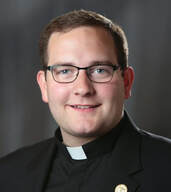
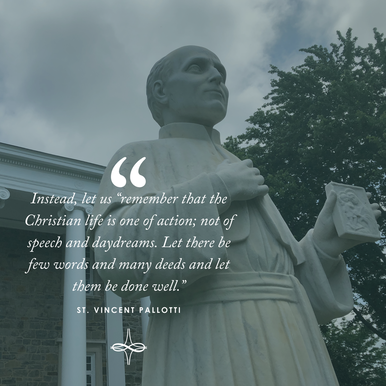
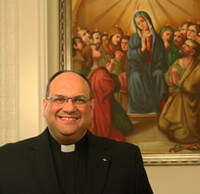
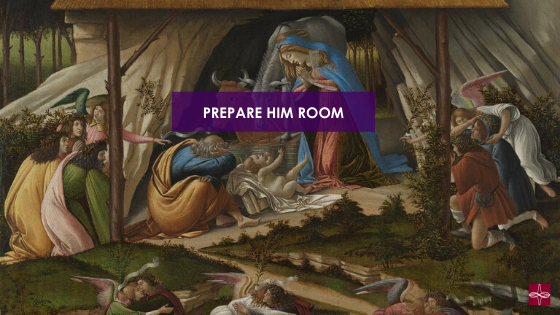

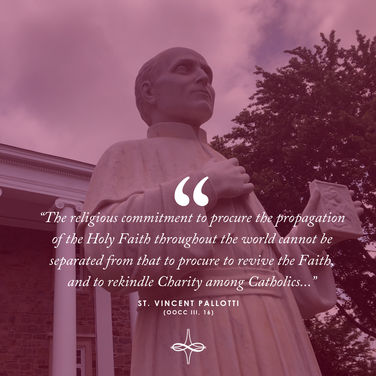
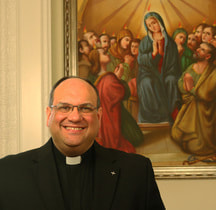
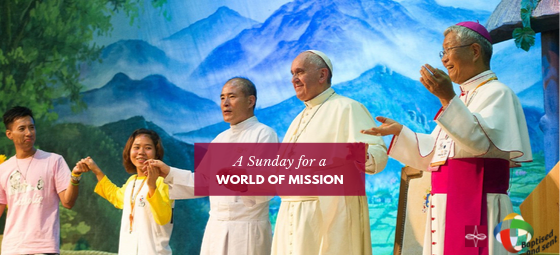



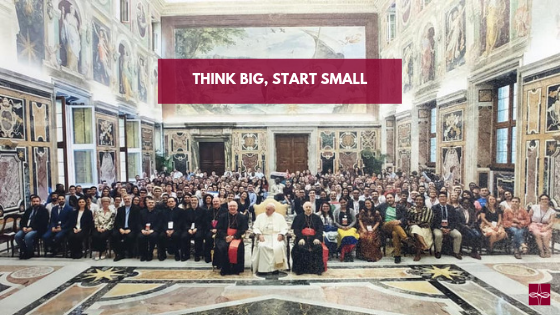


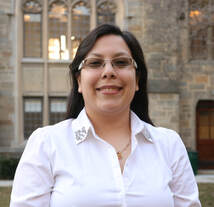



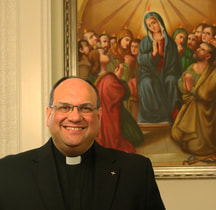


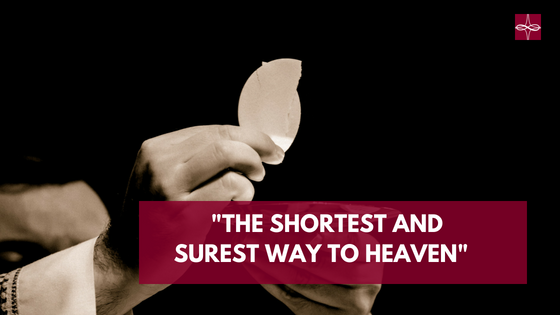





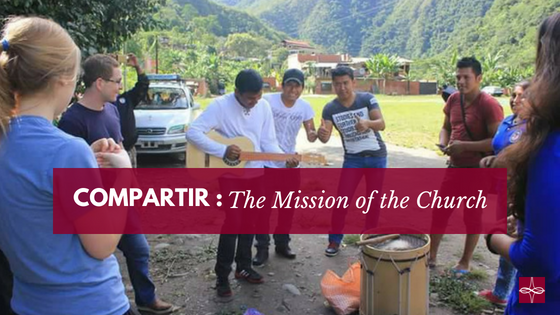
 RSS Feed
RSS Feed